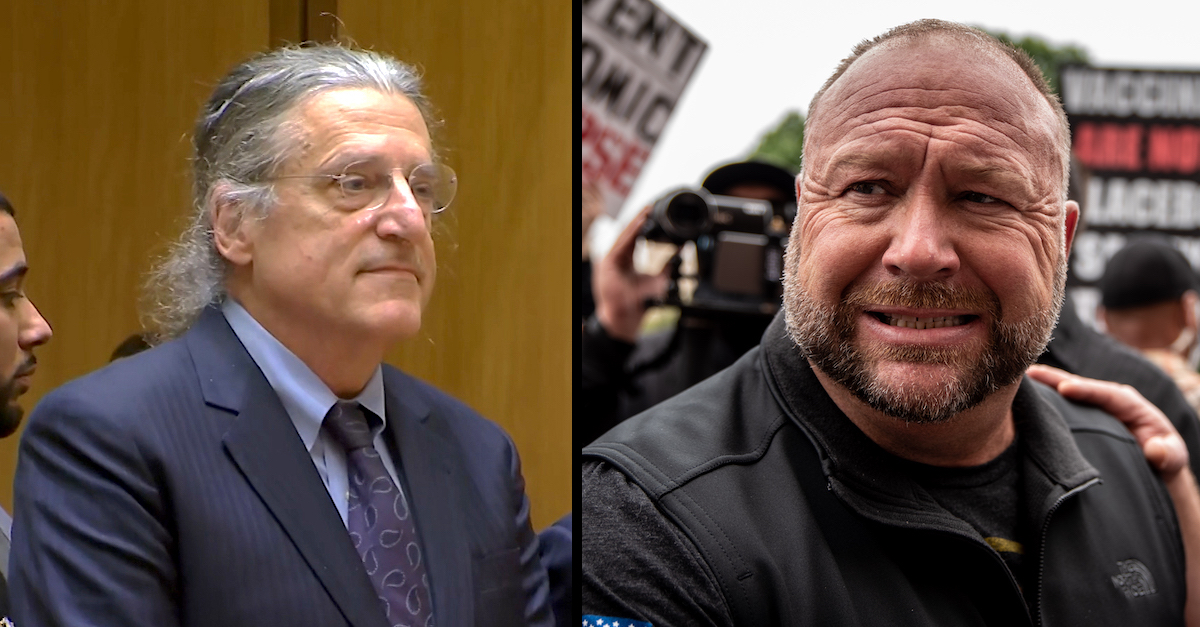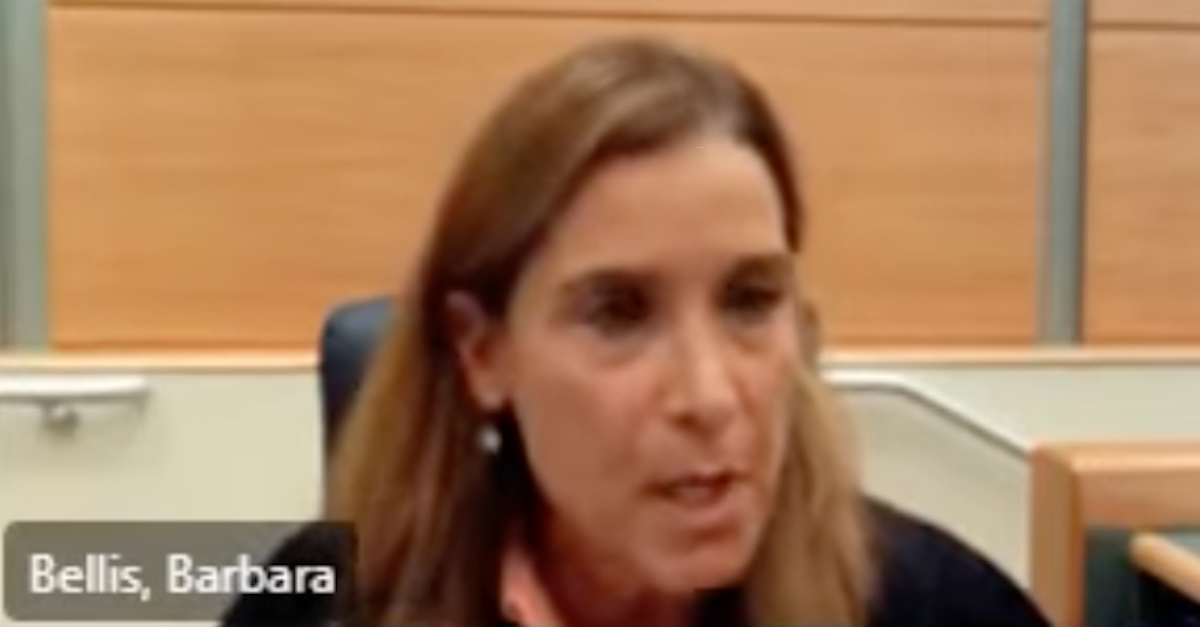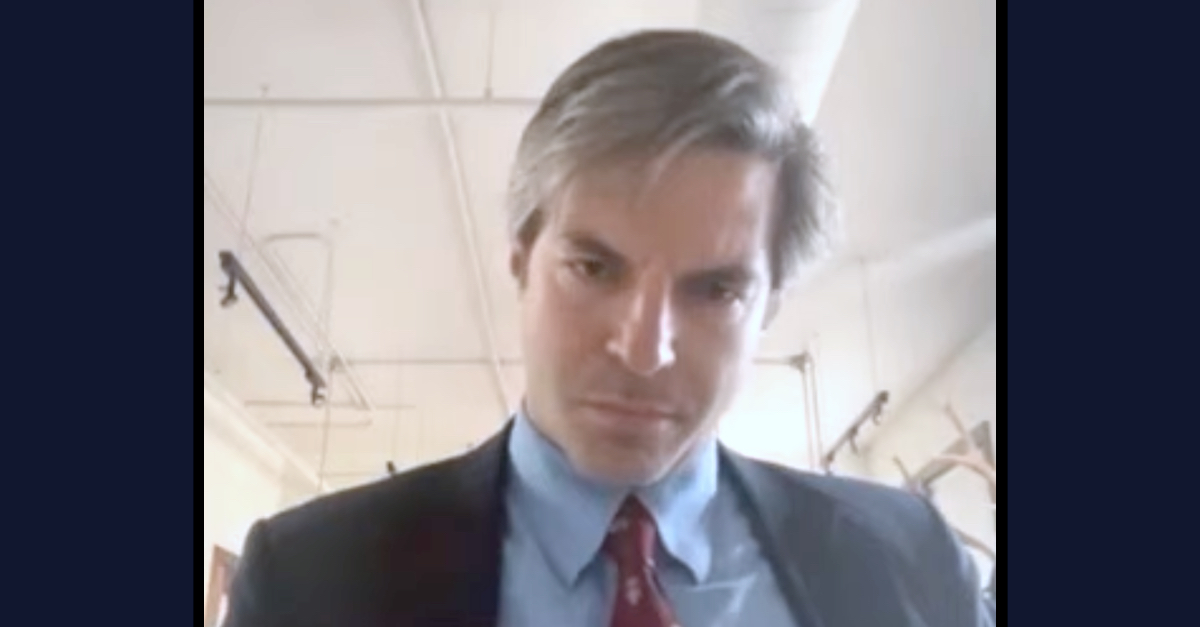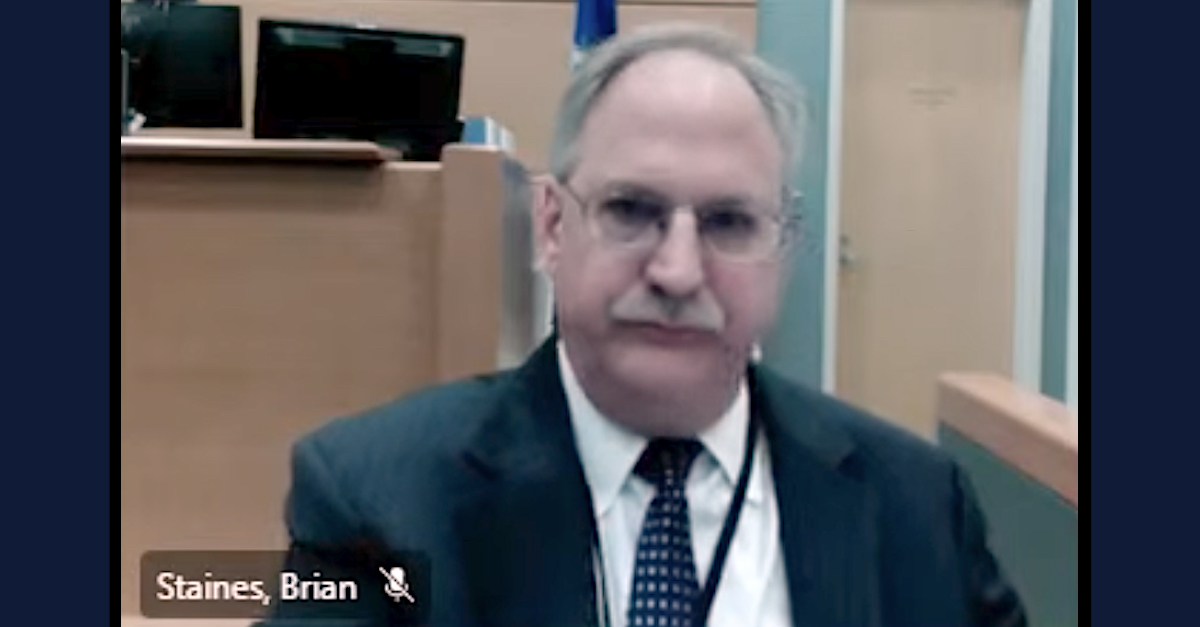
Norm Pattis (left) and Alex Jones (right). (Image of Pattis via the Law&Crime Network; image of Jones by Sergio Flores/Getty Images.)
One of the lawyers for Infowars host Alex Jones has himself lawyered up, and his counsel on Friday notified a Connecticut Superior Court judge that he fears a potential criminal prosecution in connection with an attorney ethics probe.
Wesley R. Mead, an attorney who represents Norm Pattis, said that Pattis would steadfastly assert his Fifth Amendment rights in a discipline proceeding surrounding the private medical records of one or several Sandy Hook plaintiffs. The reason for the continued assertion of those constitutional rights, Mead said, was because Pattis fears that answering questions in a discipline probe might expose him to criminal liability under analogous other state statutes.
Pattis is the lead lawyer who represents Jones in Connecticut. Jones is being sued in the Constitution State on allegations of defamation and other torts after calling the Dec. 14, 2012 Sandy Hook Elementary School massacre in Newtown, Connecticut, a “hoax.” Jones has since retracted those statements. However, he was found liable to the tune of millions of dollars in a similar civil proceeding in Texas.
It is not uncommon for the medical and psychiatric records of plaintiffs in tort lawsuits to become issues in litigation. Plaintiffs who allege that they have been harmed to a degree that warrants compensation via a court proceeding must prove the degree of the harm suffered. However, those records are oftentimes subject to confidentiality laws, and here, the judge who launched the ethics probe suspects the material may have been improperly stored, transferred, or released.
That judge, Connecticut Superior Court Judge Barbara Bellis, on Friday downplayed the suppositions that the matter could head in the direction of criminal prosecution.

Connecticut Superior Court Judge Barbara Bellis. (Image via the Law&Crime Network.)
“I’m not acting as a criminal prosecutor here,” Bellis said at a what was supposed to be a substantive hearing but which was refashioned as a status conference on Friday. “The court was never contemplating and still is not contemplating the violation of any criminal statutes.”
But Mead insinuated that someone else could, in theory, take the matter further when explaining his client Pattis’ recalcitrance.
The musings tiptoed into a discussion of whether Section 899 of the Connecticut General Statutes — the state’s evidence rules — applied to the matter at hand and whether there were analogous criminal statutes which overlapped those rules. Mead suggested that there were.
At issue in the ongoing discipline proceeding that has become embedded in the Sandy Hook litigation is whether Pattis or another another Jones attorney, F. Andino Reynal of Texas, disclosed the confidential medical and psychiatric records of the Sandy Hook plaintiffs. The specifics of how those records may have been handled have not been fully announced or vetted, but Bellis on Aug. 17 said the conduct of the attorneys appeared to be both “unprecedented” and “quite shocking.”

F. Andino Reynal appeared virtually before Judge Bellis on Aug. 17, 2022. (Image via the Law&Crime Network.)
After demanding answers to a laundry list of specifics about the transfer of the records, Bellis said in August that she was “concerned with the possible” violations Connecticut professional conduct rules 1.1, 3.43, 5.1(b), 5.1(c)(1) and (2), 5.3, and 8.4(4).
On Friday, however, Chief Disciplinary Counsel Brian Staines, who Bellis invited to the proceeding, suggested that Bellis’ laundry list of suspected rule violations was too verbose.
Rather, Staines suggested that the probe be narrowed to focus on Rule 1.15(b), which was not initially cited by Bellis. That rule deals with an attorney tasked to safeguard the property of a client or a third person.
“I think that really goes to the issues we’re talking about,” Staines said after referencing his immersion in the alleged facts of the matter.
“I don’t want to do overkill or pile on,” Staines said to Bellis while referencing the judge’s original list of concerns, “but some of these rule violations don’t apply.”

Chief Disciplinary Counsel Brian Staines. (Image via the Law&Crime Network.)
Staines said a particular Connecticut case involving another attorney in 1993 was illustrative of his thoughts on the matter.
The issue, framed accordingly, was “how these attorneys took this property, how they maintained it, and whether it was properly safeguarded when it was transferred to third parties,” Staines suggested.
The records in question were stored on a disk or hard drive, it was noted at one point during Friday’s hearing.
In a recent Texas defamation case against Jones case, Reynal made national headlines after sending Jones’ phone records to the plaintiffs who sued Jones in the Lone Star State. After a 10-day waiting period required by Texas law, Reynal failed to assert privilege over any of the phone records, and the plaintiffs began combing through them. Jones reacted in real time on the stand to the revelation, calling it a “Perry Mason moment” for the plaintiffs’ lawyer.
Reynal was very briefly connected to the parallel Connecticut litigation and faces an ethics inquiry in Connecticut alongside Pattis.
Judge Bellis ordered briefs on Pattis’ plan to assert the Fifth Amendment and several other matters. Future dates for briefs and arguments were suggested for Sept. 8, Sept. 15, Sept. 26, and Nov. 21.
Neither Pattis nor Reynal have responded to past Law&Crime requests for comment about the ethics probe launched by Judge Bellis.
Have a tip we should know? [email protected]